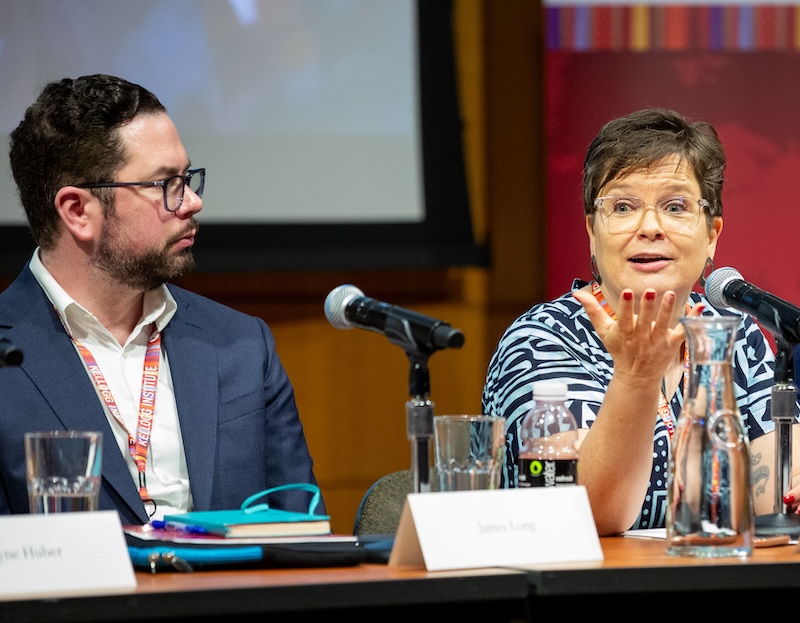Global Stage Podcast
 About the Episode:
About the Episode:
Interviewed by Kellogg Doctoral Student Affiliate Patrick McQuestion, Helena Hofbauer Balmori of the Ford Foundation and James Long of the University of Washington discuss the significance of participation in democratic governance, with a focus on inclusive decision-making processes. Our guests highlight the role of inequality in the relationship between democracy and economic development and the weakening of democracy globally. They also discuss the rise of organized crime in Latin American politics and the need for further research on the deconstruction of judiciaries in countries like El Salvador and Guatemala. The conversation emphasizes the importance of context and the need for more research on understudied topics in the field of political science.
Show Notes:
Welcome to Global Stage, a podcast highlighting academic and policy-oriented international research on democracy and human development! Global Stage is brought to you by the Kellogg Institute for International Studies, part of the Keough School of Global Affairs at the University of Notre Dame. Your host today is Patrick McQuestion, a PhD student in the peace studies and political science at the University of Notre Dame. His guests are Helena Hofbauer Balmori, international program director of civic engagement and government at the Ford Foundation, and James Long, a political science professor and co-founder of the Political Economy Forum at the University of Washington.
To begin, Helena explains the Ford Foundation's social justice-focused initiatives, emphasizing the critical link between democracy and participation. She explains that without active participation, democracy remains just a formal structure, unable to deliver on promises like equality and opportunity. Then, James discusses the complex relationship between democracy and economic development. While democracy allows voters to hold politicians accountable, he acknowledges the challenges that newly democratized countries, particularly in Sub-Saharan Africa, face in addressing pressing issues like civil wars and health crises.
African governments have improved over the last 25 years, with better economic outcomes and reduced poverty, but questions remain about whether these improvements are happening quickly enough to maintain citizens' faith in democracy. Rising inequality and crime could drive citizens to seek authoritarian alternatives. The Ford Foundation's approach to inequality, Helena explains, is more about redistributing power than simply alleviating poverty. There is an evident need for international organizations that support democratization, and James emphasizes the need for localized approaches that are tailored to the unique contexts of different countries.
Crime is increasingly becoming a political issue, especially in regions like Latin America. There is also a growing importance of the judiciary in maintaining democratic systems. Helena emphasizes the threat posed by organized crime, which not only drives violence but also infiltrates and captures state institutions, posing a significant challenge to democracy. The episode closes with a reflection on Helena’s experience at Notre Dame, the importance of nonviolence in today’s world, and insights from James’ research on crime and judicial politics.
Links:
Learn more about the Kellogg Institution for International Studies.





